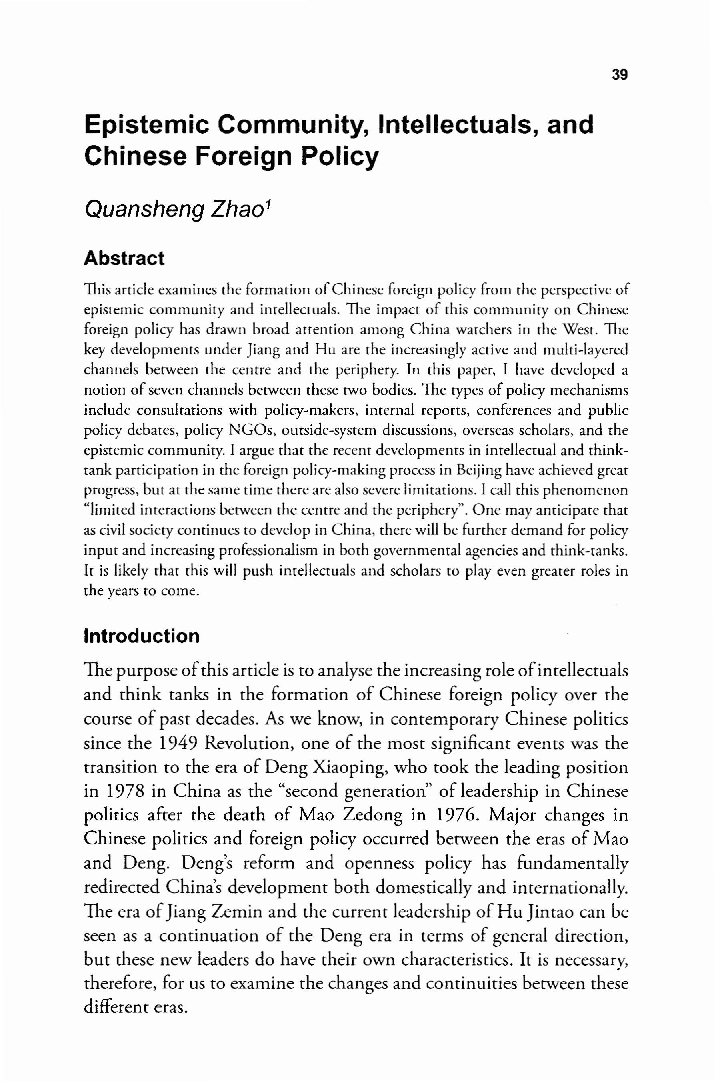| Article ID | Journal | Published Year | Pages | File Type |
|---|---|---|---|---|
| 1061611 | Policy and Society | 2006 | 21 Pages |
This article examines the formation of Chinese foreign policy from the perspective of epistemic community and intellectuals. The impact of this community on Chinese foreign policy has drawn broad attention among China watchers in the West. The key developments under Jiang and Hu are the increasingly active and multi-layered channels between the centre and the periphery. In this paper, I have developed a notion of seven channels between these two bodies. The types of policy mechanisms include consultations with policy-makers, internal reports, conferences and public policy debates, policy NGOs, outside-system discussions, overseas scholars, and the epistemic community. I argue that the recent developments in intellectual and think-tank participation in the foreign policy-making process in Beijing have achieved great progress, but at the same time there are also severe limitations. I call this phenomenon “limited interactions between the centre and the periphery”. One may anticipate that as civil society continues to develop in China, there will be further demand for policy input and increasing professionalism in both governmental agencies and think-tanks. It is likely that this will push intellectuals and scholars to play even greater roles in the years to come.
